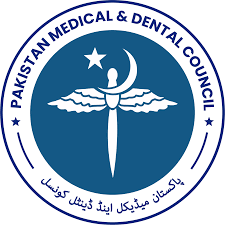

Recognised by HEC in 'Y' category

JRCD fully adhere to Code of Conduct and Best Practice Guidelines of the Committee on Publication Ethics (COPE).
The editors of this journal enforce a rigorous peer-review process together with strict ethical policies and standards to ensure to add high quality scientific works to the field of scholarly publication. Unfortunately, cases of plagiarism, data falsification, image manipulation, inappropriate authorship credit, and the like, do arise. The editors of JRCD take such publishing ethics issues very seriously and are trained to proceed in such cases with a zero tolerance policy.
Authors wishing to publish their papers in JRCD must abide to the following:
Plagiarism, data fabrication and image manipulation are not tolerated.
Plagiarism includes copying text, ideas, images, or data from another source, even from your own publications, without giving any credit to the original source.
Reuse of text that is copied from another source must be between quotes and the original source must be cited. If a study's design or the manuscript's structure or language has been inspired by previous works, these works must be explicitly cited.
If plagiarism is detected during the peer review process, the manuscript may be rejected. If plagiarism is detected after publication, we may publish a correction or retract the paper. The allowed maximum limit of Turnitn similarity index is 19%.
Irregular manipulation includes: 1) introduction, enhancement, moving, or removing features from the original image; 2) grouping of images that should obviously be presented separately (e.g., from different parts of the same gel, or from different gels); or 3) modifying the contrast, brightness or color balance to obscure, eliminate or enhance some information.
If irregular image manipulation is identified and confirmed during the peer review process, we may reject the manuscript. If irregular image manipulation is identified and confirmed after publication, we may correct or retract the paper.
Our in-house editors will investigate any allegations of publication misconduct and may contact the authors' institutions or funders if necessary. If evidence of misconduct is found, appropriate action will be taken to correct or retract the publication. Authors are expected to comply with the best ethical publication practices when publishing with JRCD.
